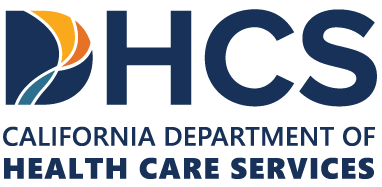Breathworks
Breathworks for addiction treatment
Breathworks for Beginners
What to Know and How to Get Started with Breathing Exercises
Breathwork is a powerful practice that can help regulate emotions, improve mental clarity, and support addiction recovery. By using intentional breathing techniques, people can shift their nervous system from stress mode to a calmer state. This makes it much easier for them to manage cravings, negative emotions, and anxiety.
If you’re looking for a simple yet effective way to enhance your recovery from drug or alcohol addiction and improve your well-being, breathwork is an excellent starting point.
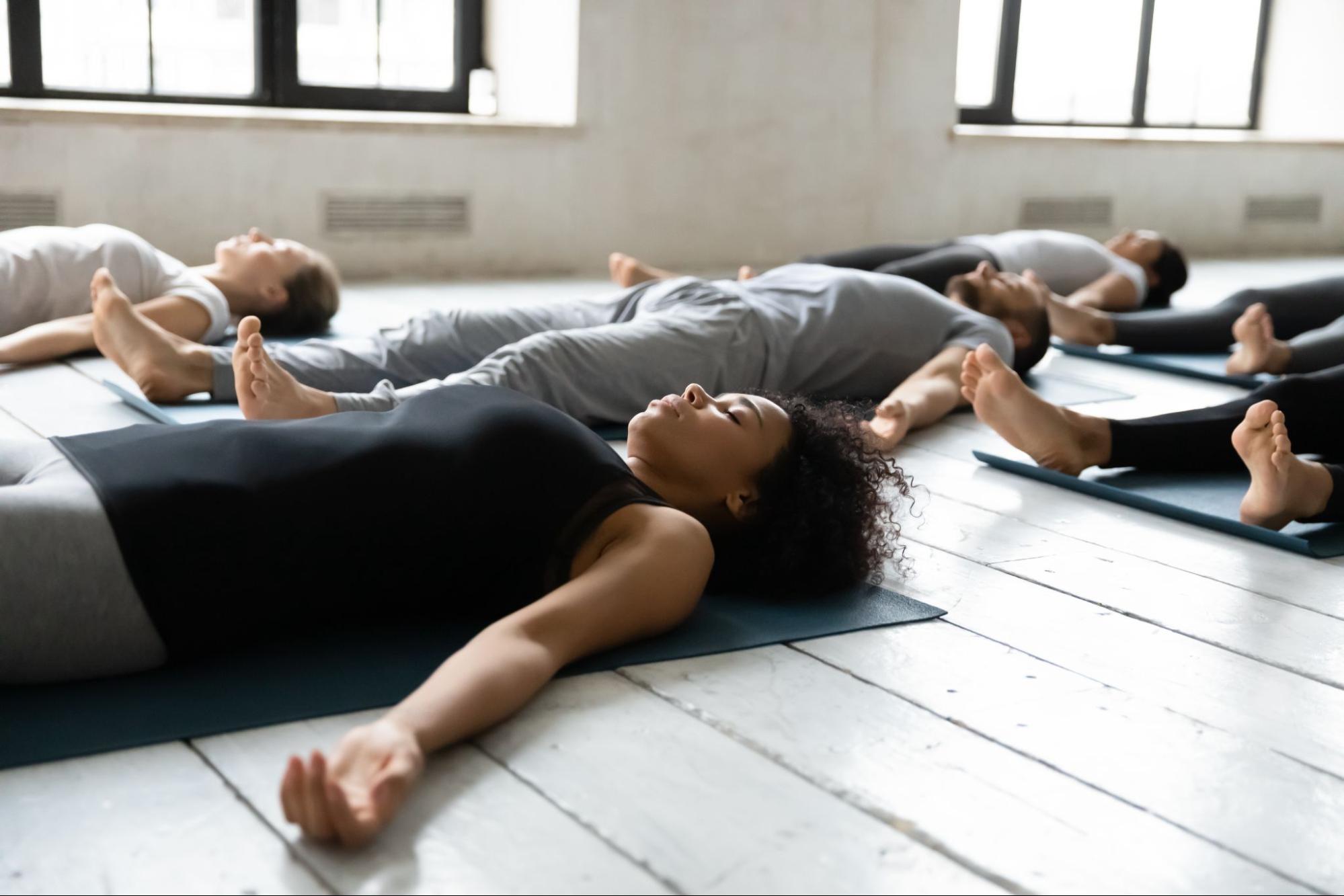
How Can Breathwork Help with Addiction Recovery?
Addiction impacts the body and mind. Breathwork can help bridge the gap between physical and emotional healing by offering a natural way to:
- Reduce stress and anxiety
- Improve focus
- Sharpen mental clarity
- Increase emotional awareness and self-control
- Regulate mood and energy levels
- Boost physical health
By practicing specific breathing techniques, individuals in recovery from drug or alcohol addictions can develop healthier coping mechanisms, making it easier for them to handle the triggers and emotional ups and downs associated with recovery.
The Potential Health Benefits of Breathwork for Addiction Recovery
Breathwork offers an array of benefits that support physical and mental well-being. These include:
- Increased resilience: Addiction recovery demands patience and perseverance. Breathwork helps strengthen emotional resilience by calming the nervous system and reducing reactivity to stress.
- Body awareness: Many people in recovery feel disconnected from their bodies. Conscious breathing practices help them become more attuned to physical sensations, enabling them to identify and address cravings or emotional distress more efficiently.
- Better sleep: Breathwork encourages relaxation, which can prompt improved sleep quality. Deep breathing techniques slow the heart rate, lower blood pressure, and promote a restful state, making it easier for someone to fall and stay asleep during the challenging early phase of recovery.
- Improved mental clarity: Practicing breathwork increases oxygen flow to the brain, improving focus, memory, and overall cognitive function, all integral to a sustained recovery from drug or alcohol addiction.
- Emotional regulation: Breathing techniques can help process emotions healthily, reducing impulsivity and strengthening the ability to manage complicated feelings without reaching for drugs or alcohol.

Additional Breathwork Benefits
Beyond these addiction-specific benefits, breathwork may also:
- Boost the immune system: Helps the body fight illness by increasing oxygen levels and reducing stress.
- Reduce chronic pain: Some breathwork techniques relieve pain by relaxing muscles and improving circulation.
- Assist creativity: Deep breathing can enhance creative thinking and problem-solving.
- Support emotional healing: Helps release stored trauma and suppressed emotions.
How do Breathwork and Meditation Differ?
Although breathwork and medication are often used together, they serve different purposes.
Breathwork focuses on controlled breathing techniques to change mental and emotional states quickly. Meditation, by contrast, encourages stillness and awareness by observing thoughts and sensations without judgment.
Both practices can be beneficial in addiction recovery, but breathwork offers a more active approach that may be easier for beginners who struggle with quieting their minds.
Types and Techniques of Breathwork
There are many types of breathwork, each with inbuilt benefits.

Diaphragmatic Breathing (Belly Breathing)
A simple and foundational technique that involves deep breathing into the belly rather than the chest. This method helps reduce stress and improves oxygen flow.
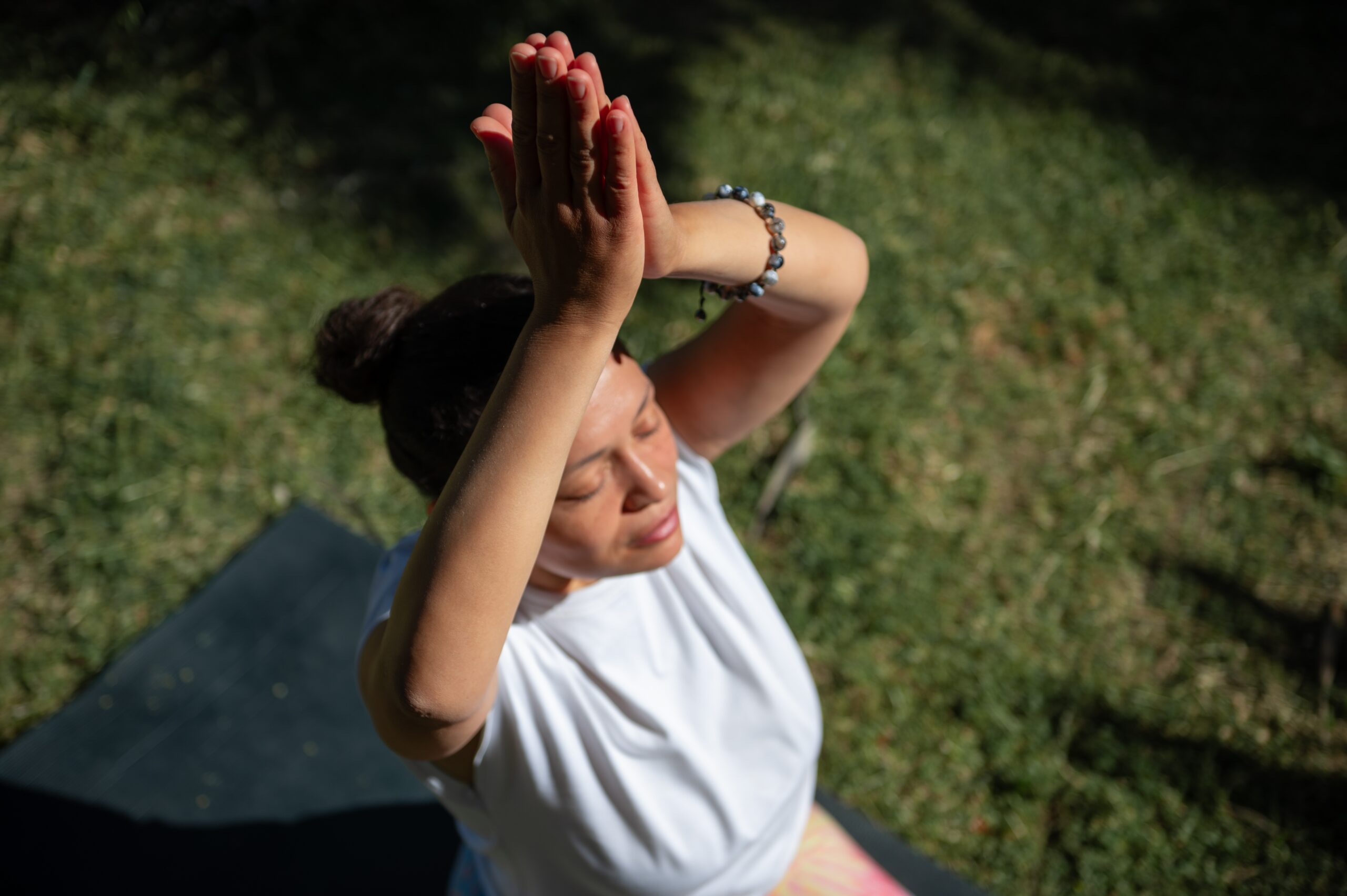
Holotropic Breathwork
Developed in the 1970s, this technique involves fast, rhythmic breathing to reach an altered state of consciousness, helping release emotional blockages.

Wim Hof Method
A breathing technique combined with cold exposure and meditation. It boosts the immune system, increases energy levels, and improves mental focus.

Pranayama
A traditional yogic practice that includes controlled breathing patterns to balance the body and mind.

Breath of Fire
A rapid, rhythmic breathing technique often used in Kundalini yoga. It increases energy, clears the mind, and detoxifies the body.
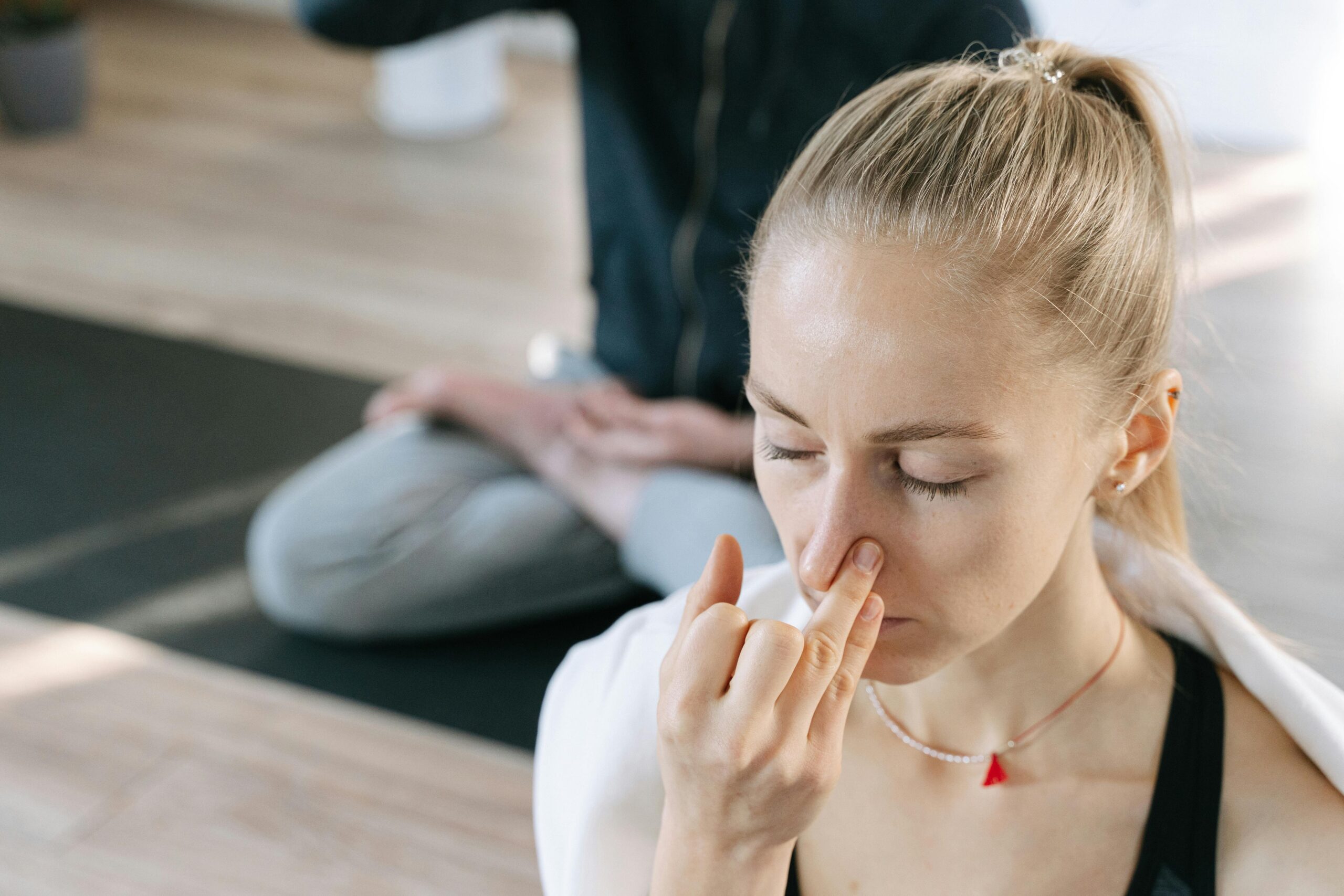
Alternate Nostril Breathing
A calming technique where you inhale through one nostril and exhale through the other. It promotes relaxation and mental balance.
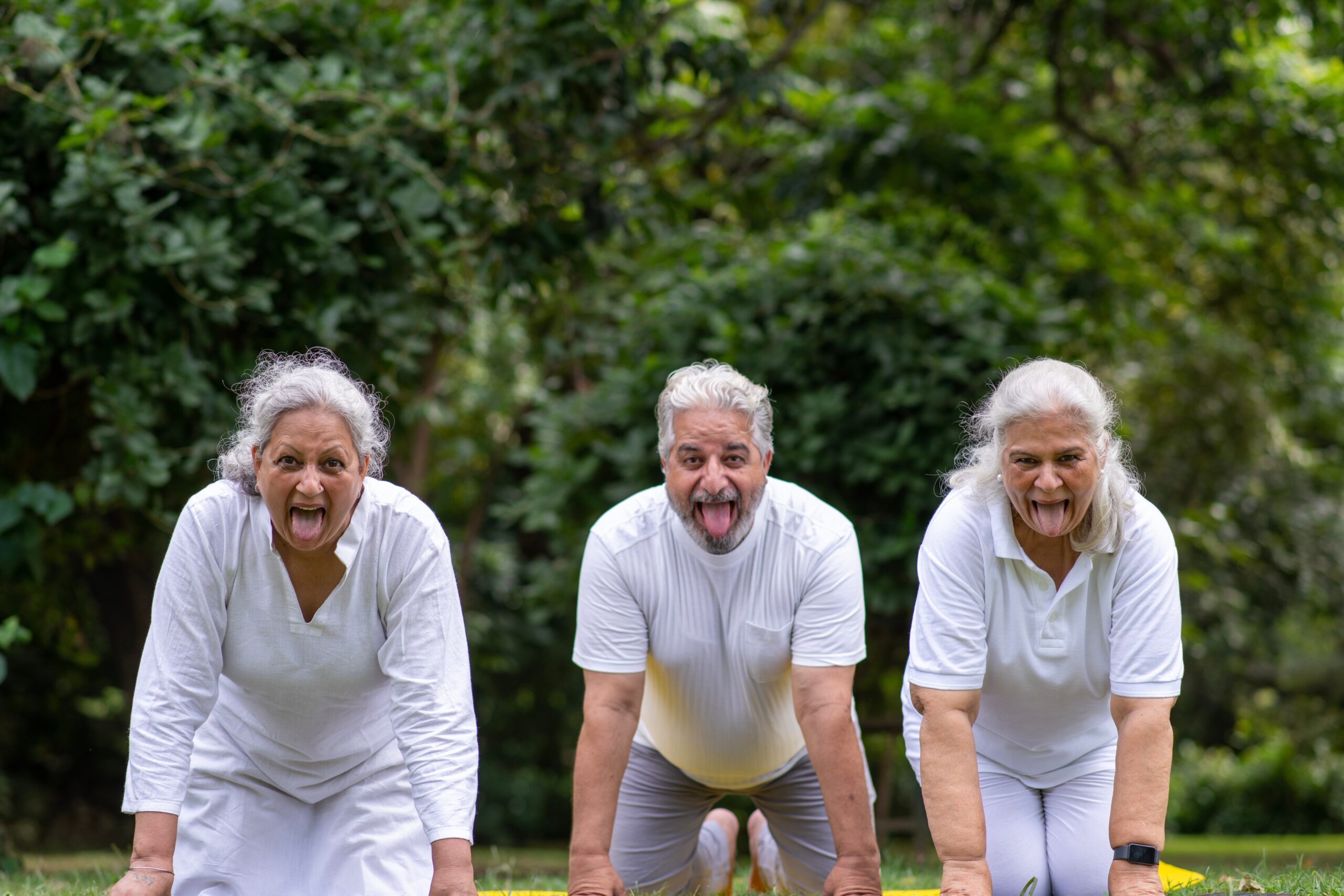
Lion’s Breath
A forceful exhale through the mouth while sticking out the tongue, helping to relieve tension and boost energy.
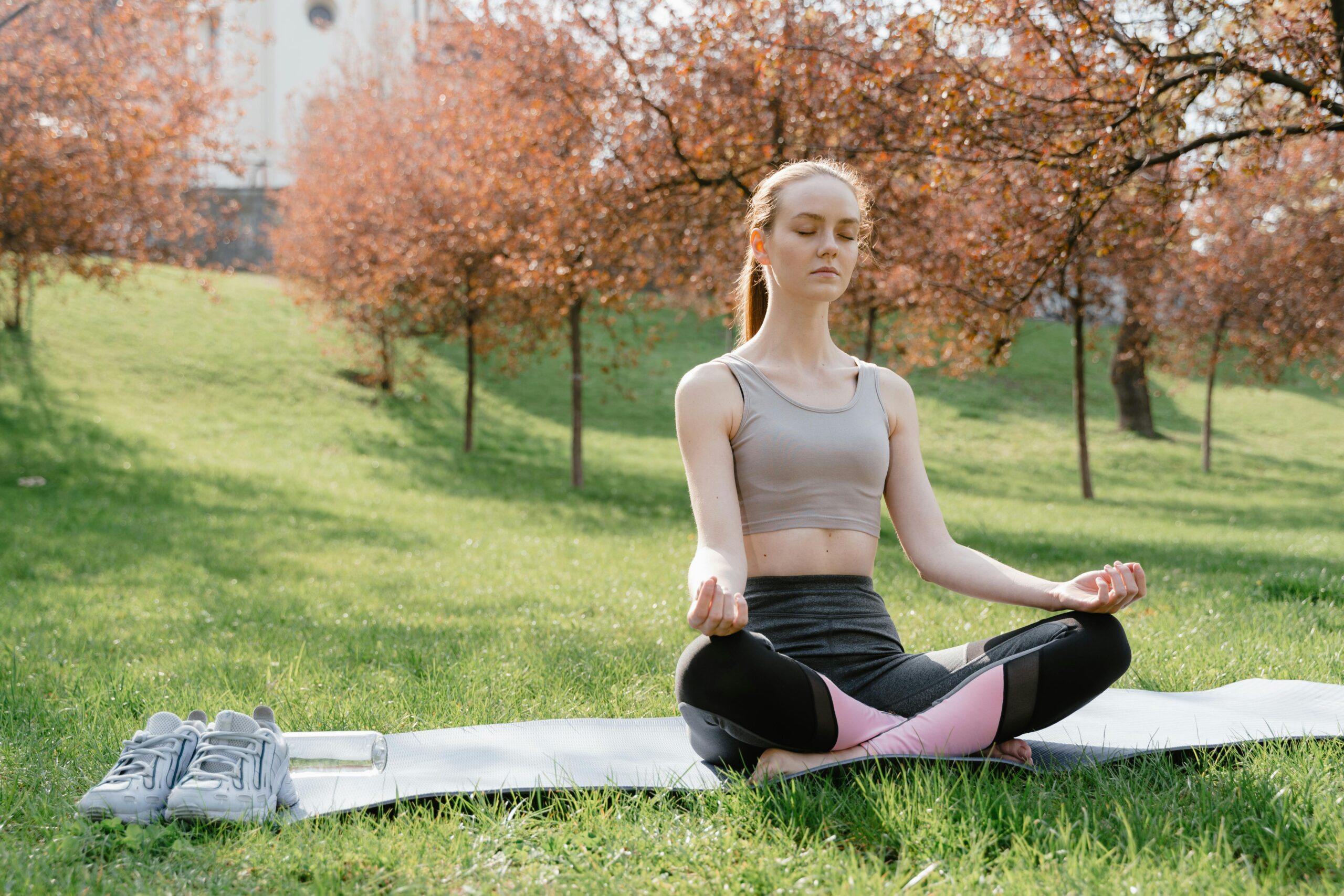
Ujjayi Pranayama (Ocean Sounding Breath)
A rapid, rhythmic breathing technique often used in Kundalini yoga. It increases energy, clears the mind, and detoxifies the body.
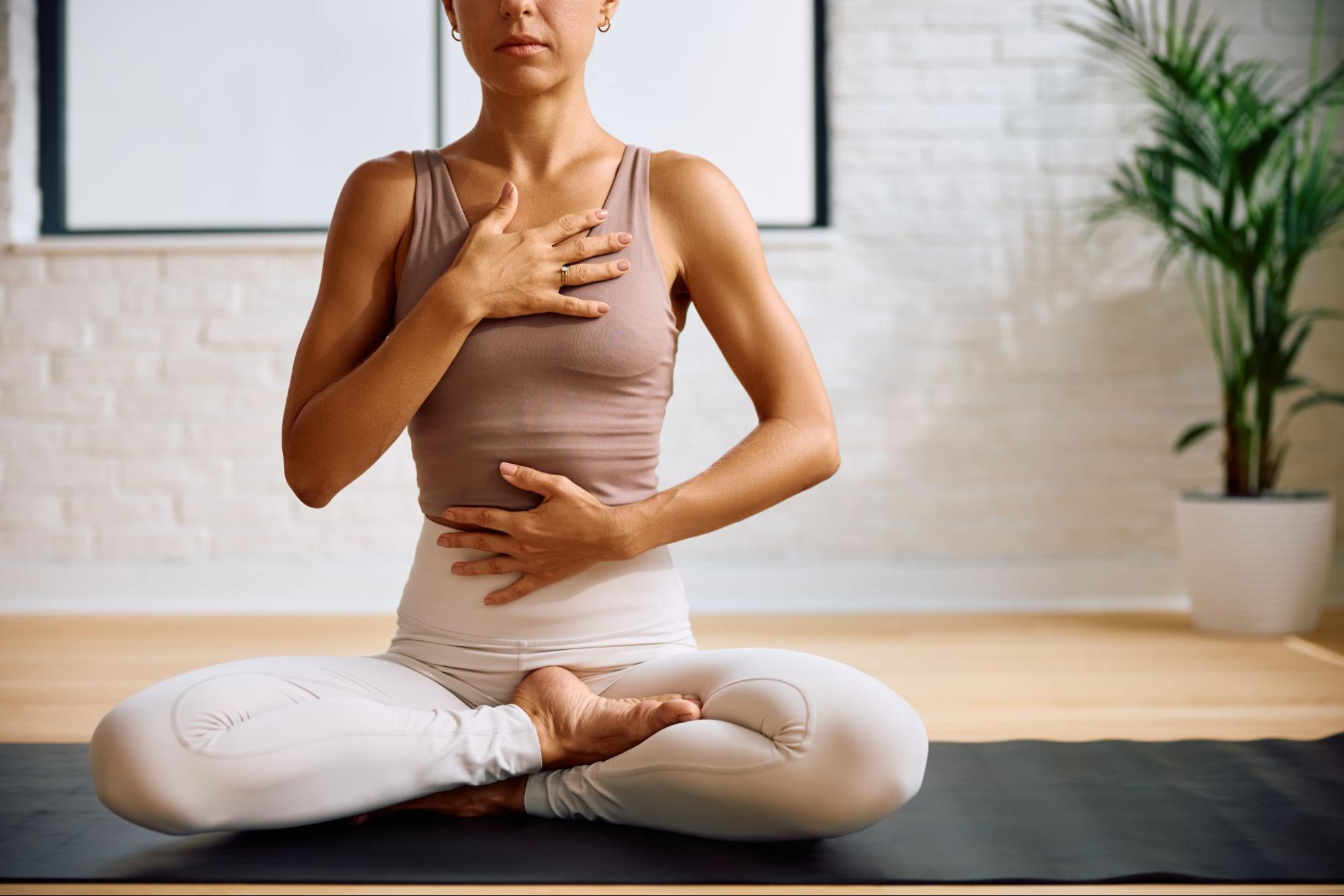
Box Breathing (Sama Vritti Pranayama with Antara Kumbhaka and Bahya Kumbhaka)
A technique that involves inhaling, holding, exhaling, and holding again, each for a count of 4 seconds. It helps manage stress and improve focus.
How do Breathwork and Meditation Differ?
Breathwork is backed by science. Studies show that controlled breathing can:
- Lower levels of cortisol (the stress hormone)
- Reduce symptoms of depression and anxiety
- Improve heart rate variability (a marker of overall health)
- Increase oxygen delivery to the brain and muscles
Many people report immediate benefits from breathwork, such as feeling calmer, more focused, and emotionally lighter after one session.


What Are the Negatives of Breathwork?
While breathwork is generally safe, some individuals may experience:
- Dizziness or lightheadedness (common with rapid breathing techniques)
- Emotional discomfort if past trauma surfaces
- Tingling
- Muscle contractions
If you have respiratory conditions, cardiovascular complications, or a history of trauma, consult a healthcare professional before starting intense breathwork practices.
What Is the 7-Second Lung Trick?
The 7-second lung trick is a simple breathing exercise to reduce stress and promote relaxation. Here’s how to do it:
- Inhale through your nose (4 seconds)
- Hold your breath (7 seconds)
- Exhale slowly through your mouth (8 seconds)
This technique activates the parasympathetic nervous system, calming the body and mind.


Breathwork and Stress Management
Stress is a major trigger for relapse in addiction recovery. Breathwork helps by:
- Lowering blood pressure
- Reducing muscle tension
- Slowing down racing thoughts
- Promoting emotional stability
Regular breathwork practice can make it easier to handle stress without resorting to substance use as a coping mechanism.
Breathwork for Anxiety and Depression
Many people in recovery have co-occurring anxiety and depression. Breathwork can help by:
- Regulating emotions and reducing panic symptoms
- Increasing oxygen levels in the brain and improving mood
- Providing a sense of control during overwhelming moments
Techniques like box breathing, alternate nostril breathing, and diaphragmatic breathing are especially effective for managing anxiety.

Breathwork and Meditation
Combining breathwork with meditation can enhance relaxation and self-awareness. A simple way to integrate both practices is to start with a few minutes of deep breathing before entering a meditative state. This combination helps quiet the mind, making it easier to stay present and focused.

Getting Started with Breathwork at The Retreat
If you’re new to breathwork, here are some tips to get started:
- Find a quiet space: Minimize distractions to focus fully on your breath.
- Start with simple techniques: Begin with diaphragmatic or box breathing before trying more advanced methods—ease in gently.
- Practice daily: Even a few minutes each day can make a meaningful difference and start delivering the benefits outlined above.
- Join a guided session: Consider attending a breathwork class or working with a facilitator.
- Listen to your body: Slow down or take a break if you feel dizzy or uncomfortable.
Breathwork is a powerful tool for recovery, and we can help you use it at The Retreat. All our addiction treatment programs are personalized, blending evidence-based interventions with holistic therapies like breathwork. Get in touch today to learn how we can help you kickstart your recovery with a customized treatment plan.




